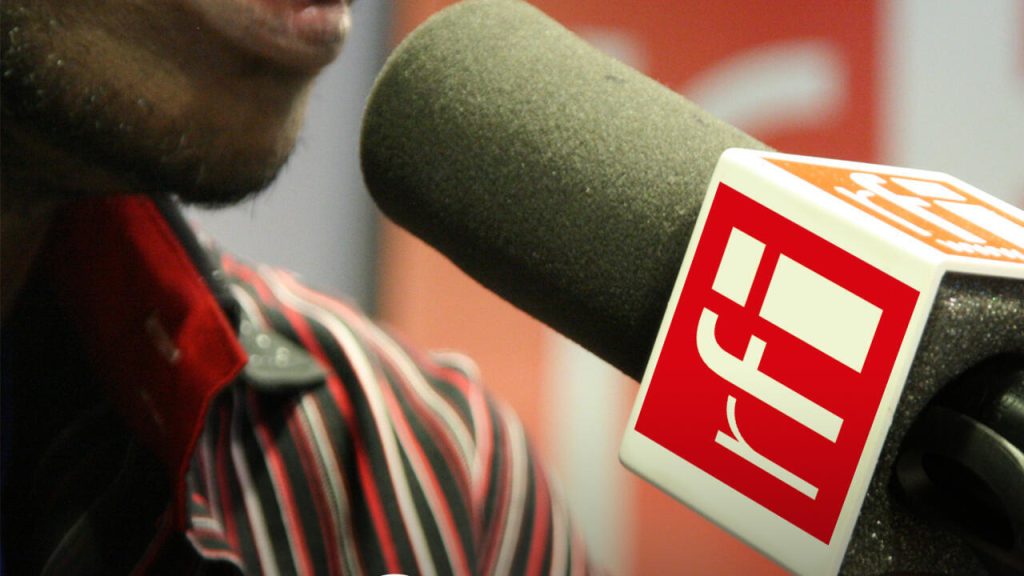Burkina Faso’s military government announced that one of the country’s most popular radio stations, Radio Omega, can start broadcasting again on Monday, September 11. The station had been suspended for airing an interview that was considered disrespectful to Niger’s new military leaders.
The government had shut down Radio Omega on August 10 but decided to lift the suspension, according to a statement by Communications Minister Rimtalba Jean-Emmanuel Ouedraogo on Sunday, September 10.
The decision came after the media monitoring center in Burkina Faso, known as OBM, requested that the government reconsider. The government accepted the argument that the radio station had “learned from the punishment.”
The minister emphasized that the government is committed to freedom of opinion and the press but stressed that journalists must act responsibly. He also reminded media outlets that their broadcasts should not harm the efforts to fight against the threats faced by the Sahel region.
The suspension happened after Radio Omega aired an interview on August 10 with Ousmane Abdoul Moumouni, the spokesperson of a group in Niger that wants to return President Mohamed Bazoum to power. Bazoum was overthrown on July 26 by members of the Presidential Guard.
During the interview, Moumouni made remarks that were seen as insulting to Niger’s new military leaders. At the time, Minister Ouedraogo said the suspension of the radio station was done “for the greater good of the nation.”
Radio Omega is owned by journalist and former foreign minister Alpha Barry. Last year, Burkina Faso experienced two military coups, partly due to frustrations over the government’s inability to stop the jihadist insurgency.
Burkina Faso has since expressed support for Niger’s new military leaders and, along with Mali, warned that any military intervention to restore President Bazoum would be seen as a “declaration of war” against them.
In recent months, Burkina Faso’s authorities have also suspended French TV channels LCI and France24, as well as Radio France Internationale (RFI), and expelled journalists from French newspapers Liberation and Le Monde.
Burkina Faso’s actions toward media outlets reflect the growing tension between its military government and the international community, especially France.
Many of the suspensions and expulsions appear to be part of a larger trend in the Sahel region, where military leaders in countries like Mali, Niger, and Burkina Faso have become more hostile toward foreign influence, particularly from Western nations.
The move to suspend Radio Omega was seen by some as a way to control the narrative in Burkina Faso and limit criticism of military governments in neighboring countries like Niger.
Critics argue that this limits freedom of speech and the press, which are essential for holding governments accountable.
However, the government insists that these actions are necessary to maintain national security and unity. Minister Ouedraogo stated that media outlets must be careful not to broadcast content that could harm efforts to combat terrorism and other threats in the region.
In recent years, Burkina Faso, Niger, and Mali have faced severe challenges due to jihadist insurgencies, which have displaced millions of people and caused widespread violence.
The military governments in these countries argue that foreign media and interventions often undermine local efforts to deal with these problems.
The lifting of Radio Omega’s suspension could be seen as an attempt by the Burkinabe government to show that it is open to dialogue and freedom of the press, as long as journalists follow the rules set by the state.
But it also raises concerns about the growing restrictions on media and the increasing influence of military leaders in the region.
As the situation in Burkina Faso and neighboring countries continues to evolve, the role of the media will remain critical in informing the public and providing a platform for debate.
However, the ongoing pressure on journalists and media outlets suggests that the environment for free and independent reporting in the region will continue to face significant challenges.
In the face of these restrictions, both local and international media organizations will need to navigate a complex landscape where balancing the need for honest reporting with the demands of military governments becomes more difficult.




















